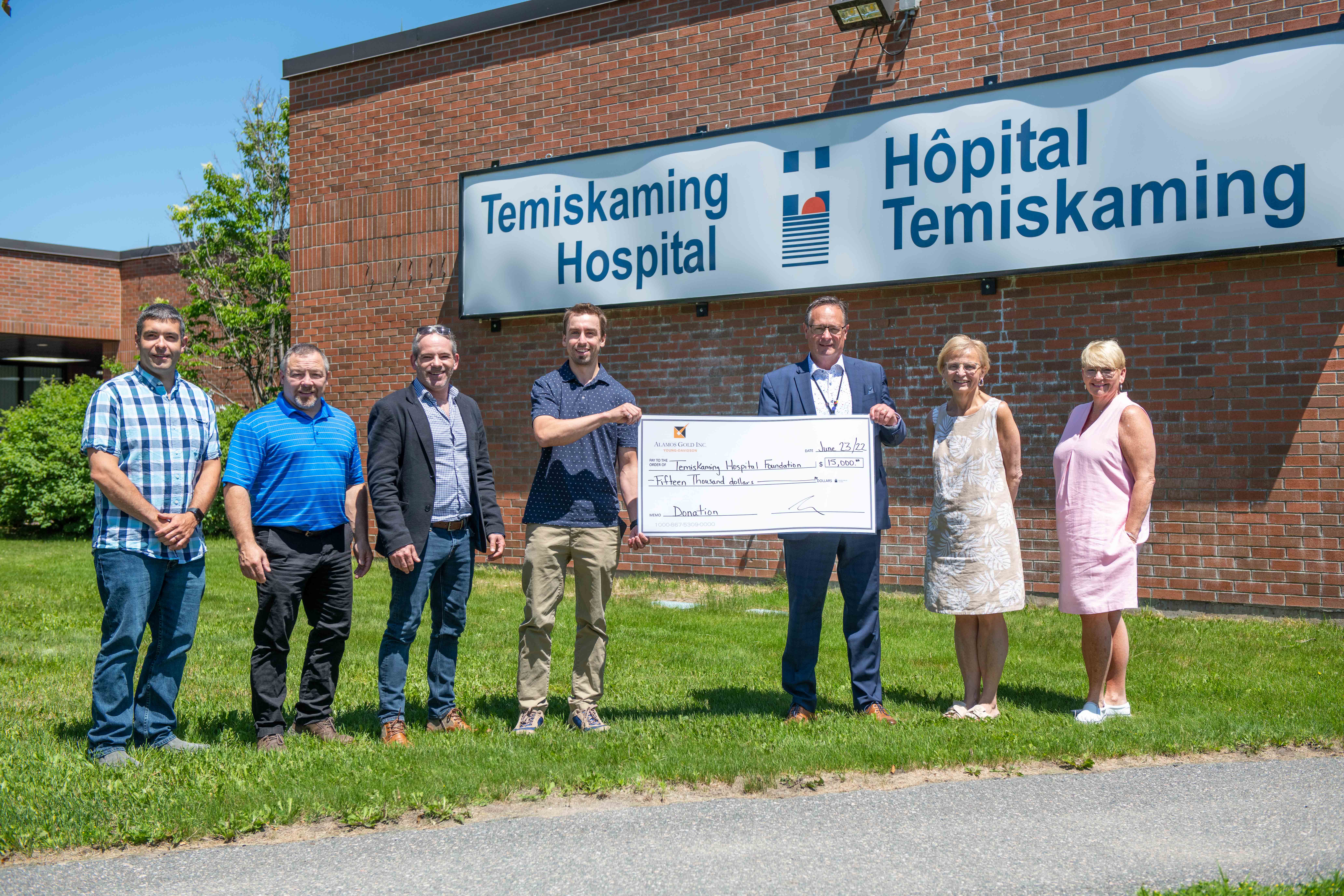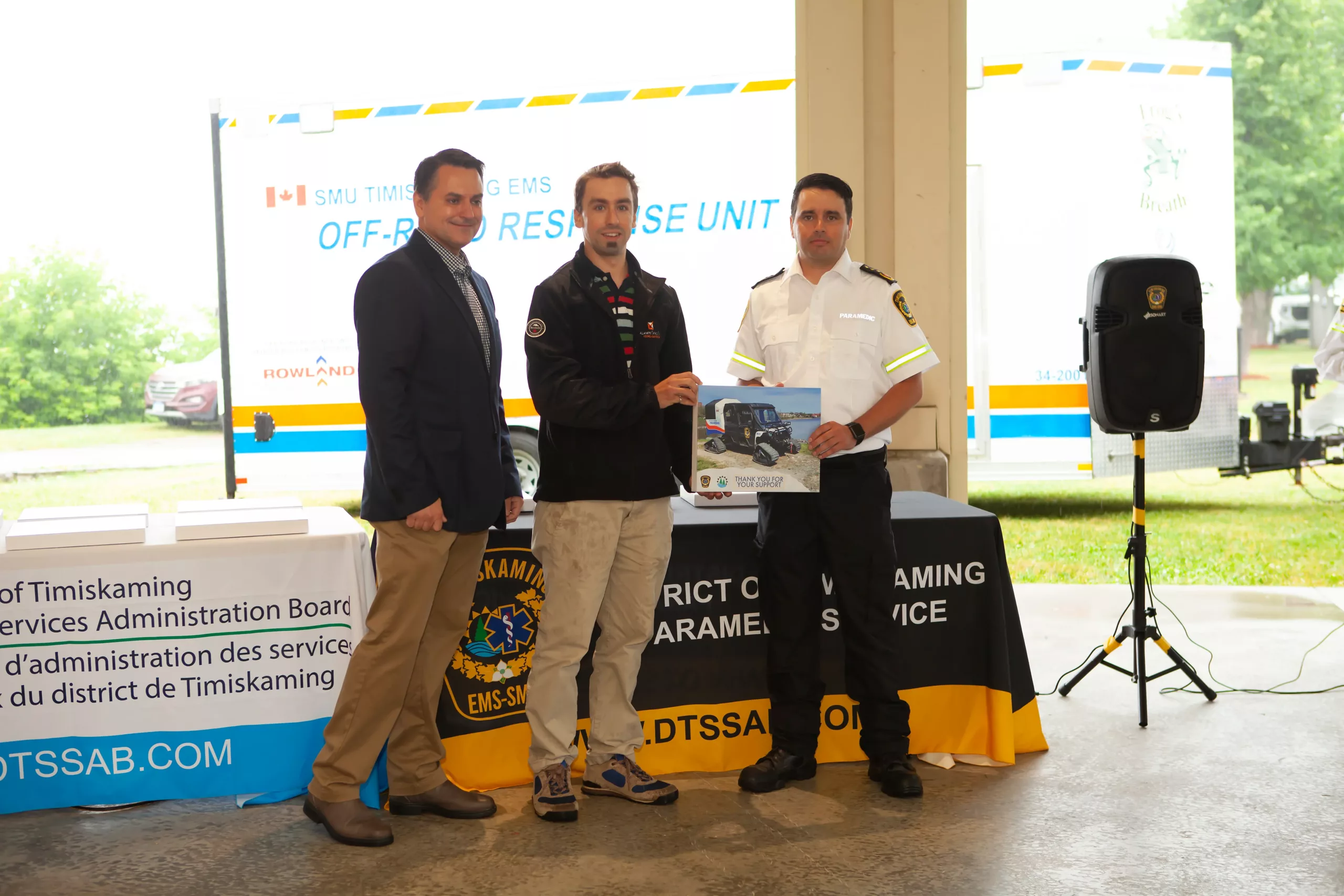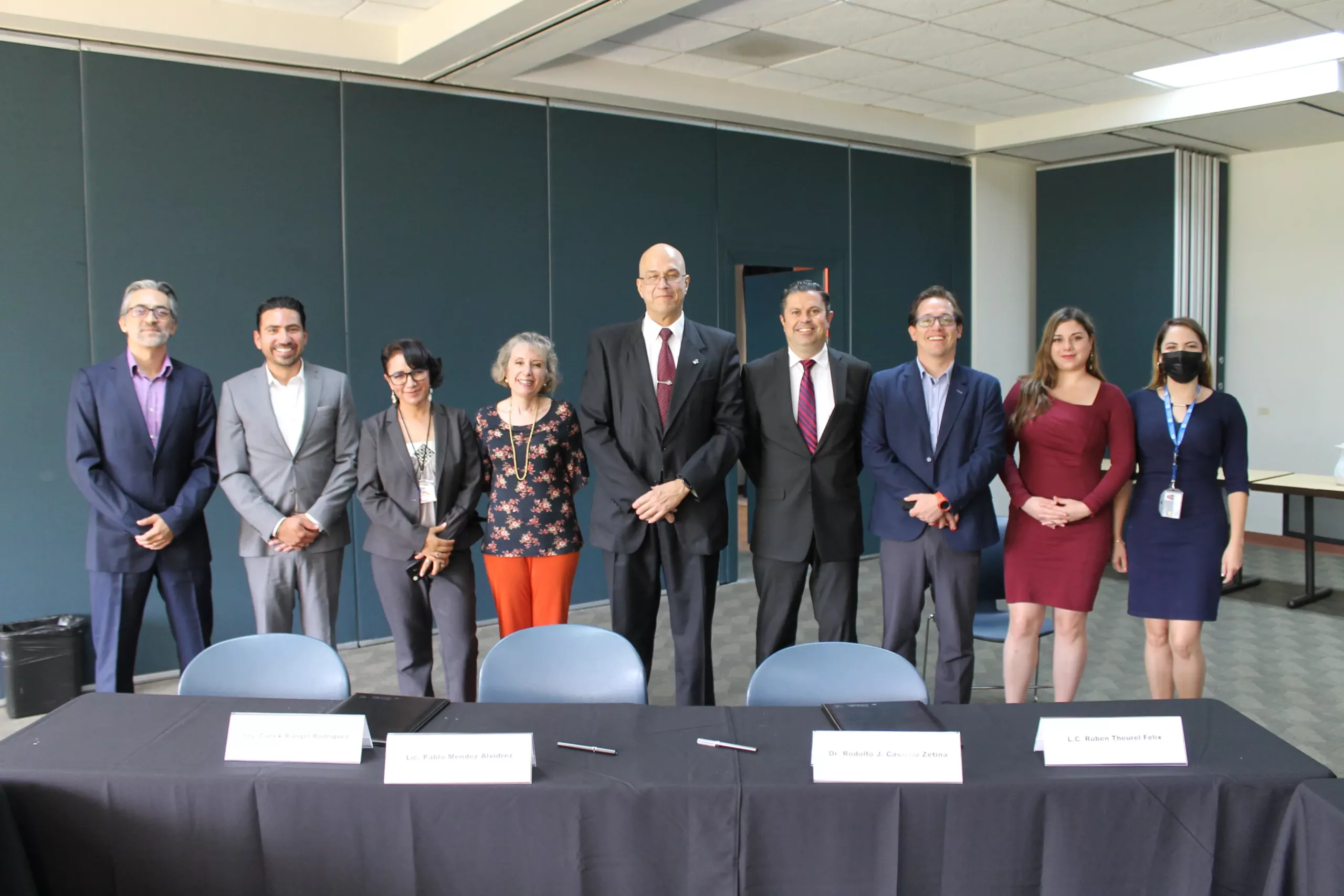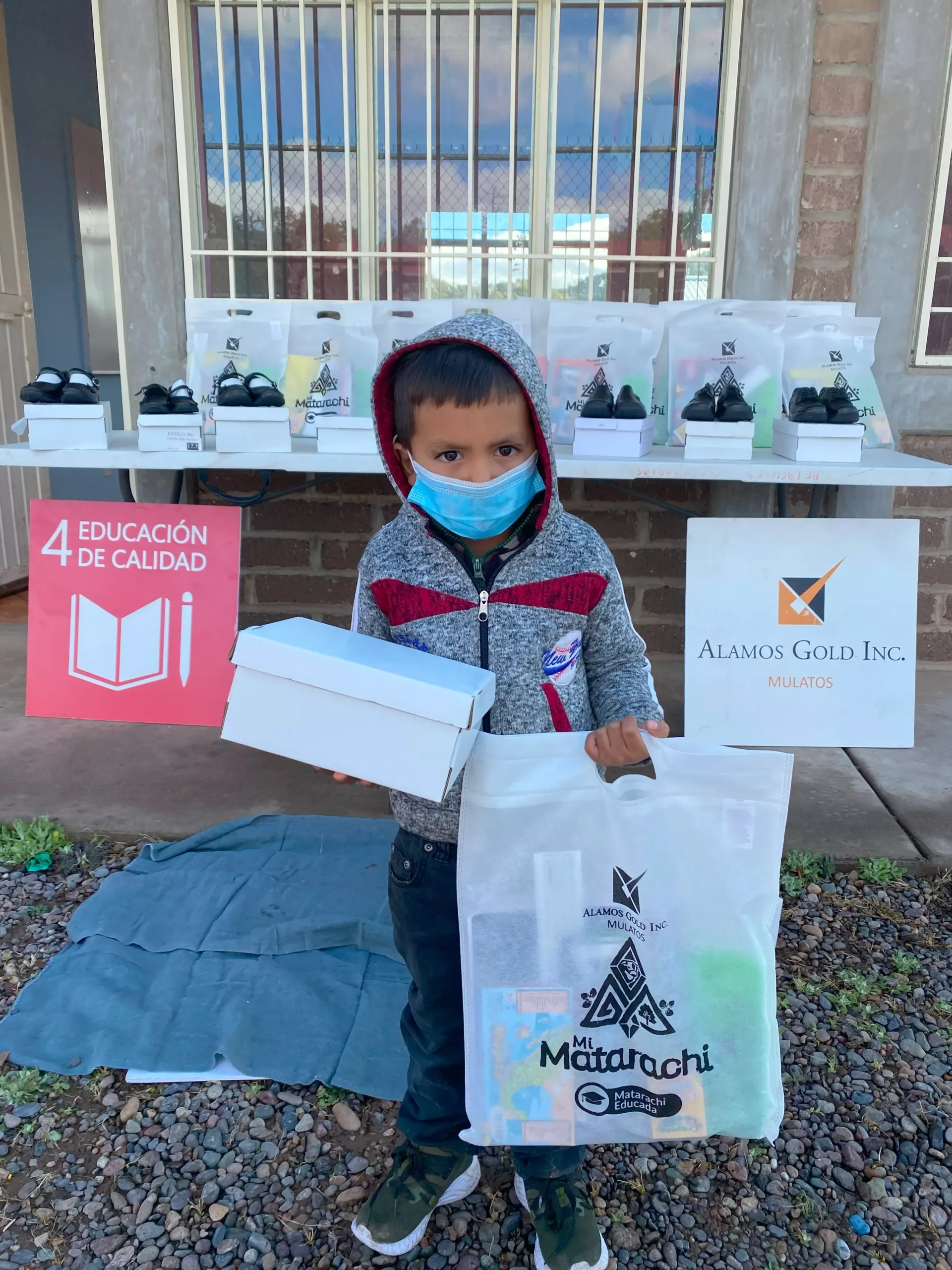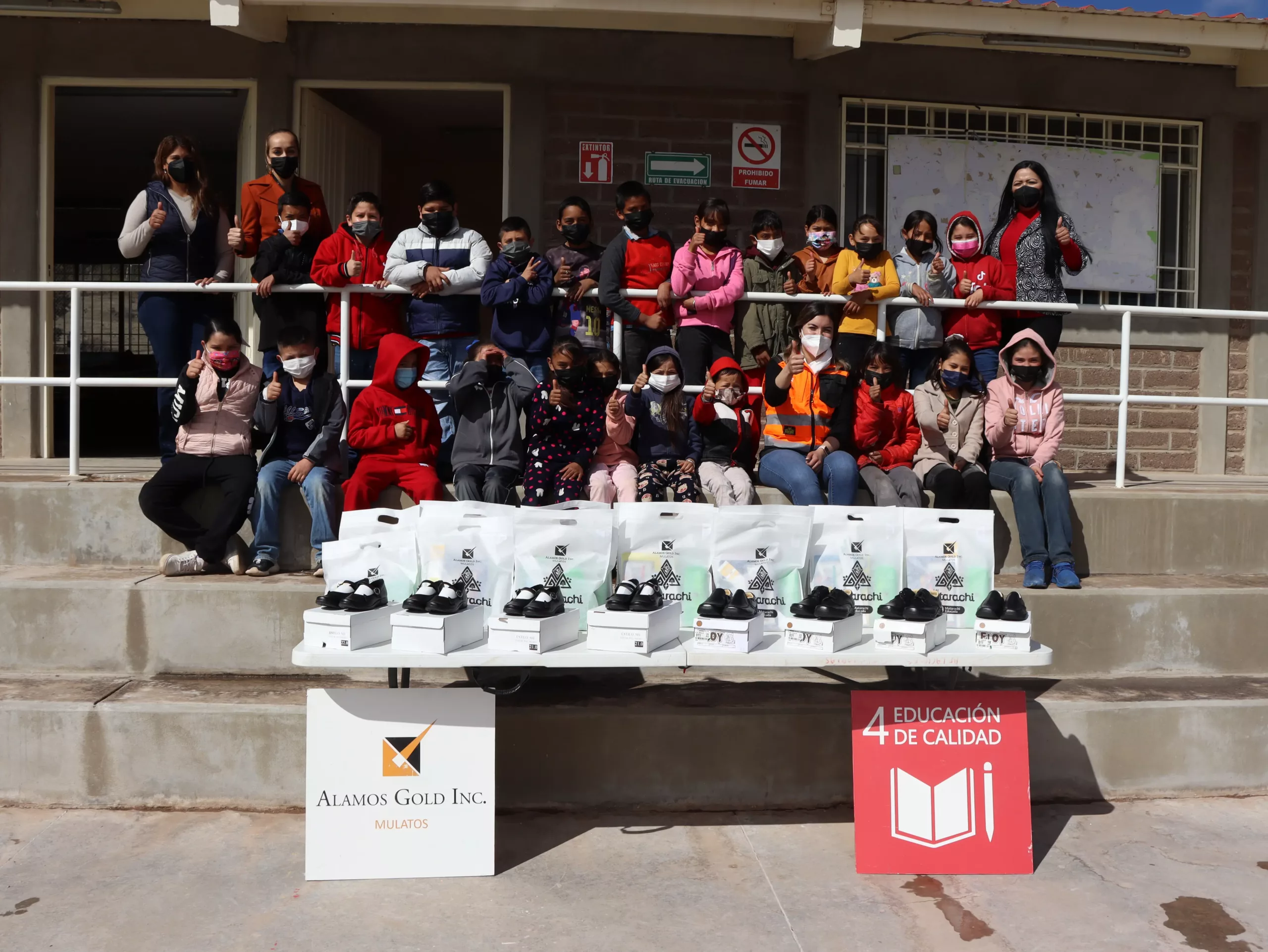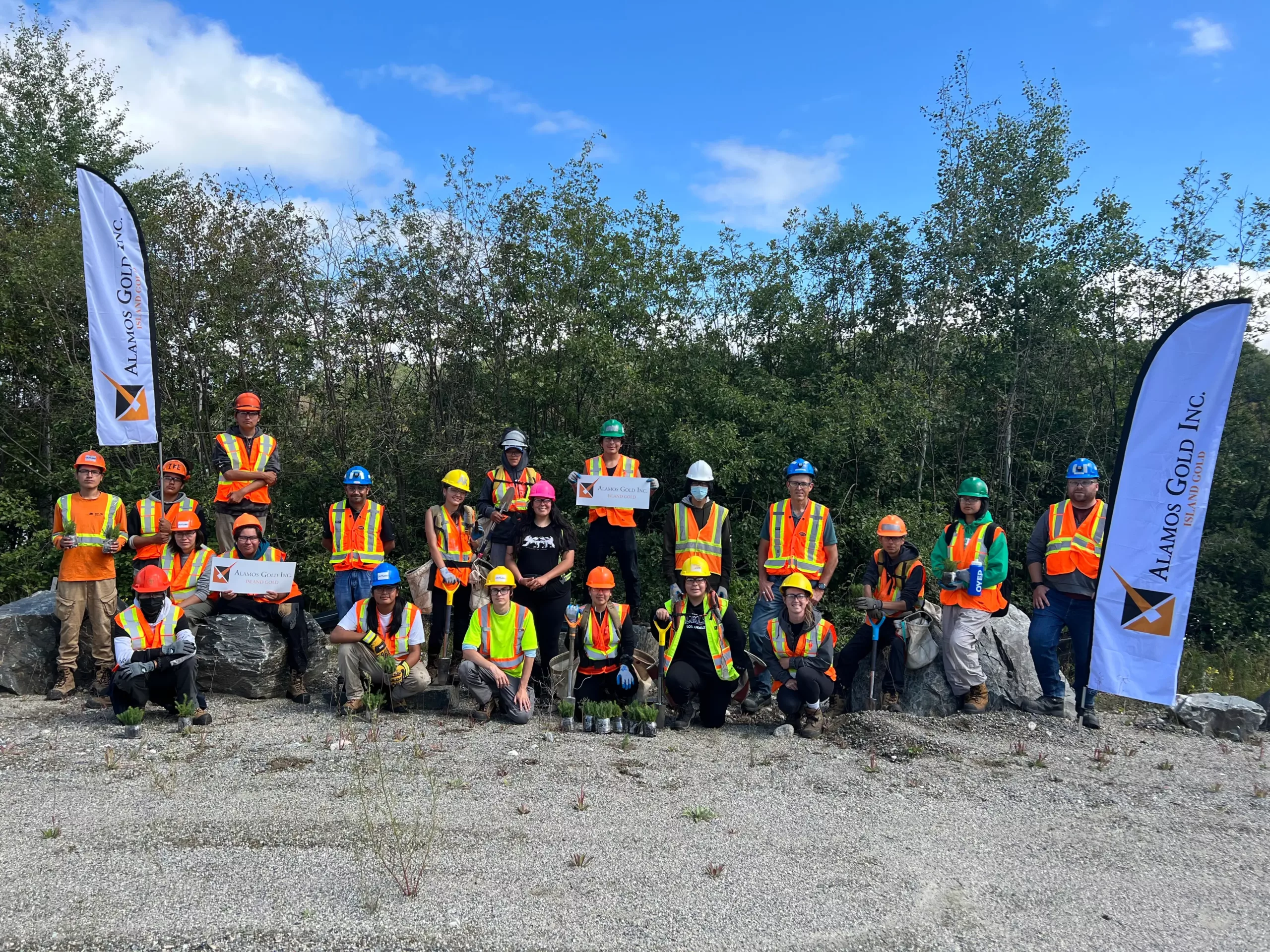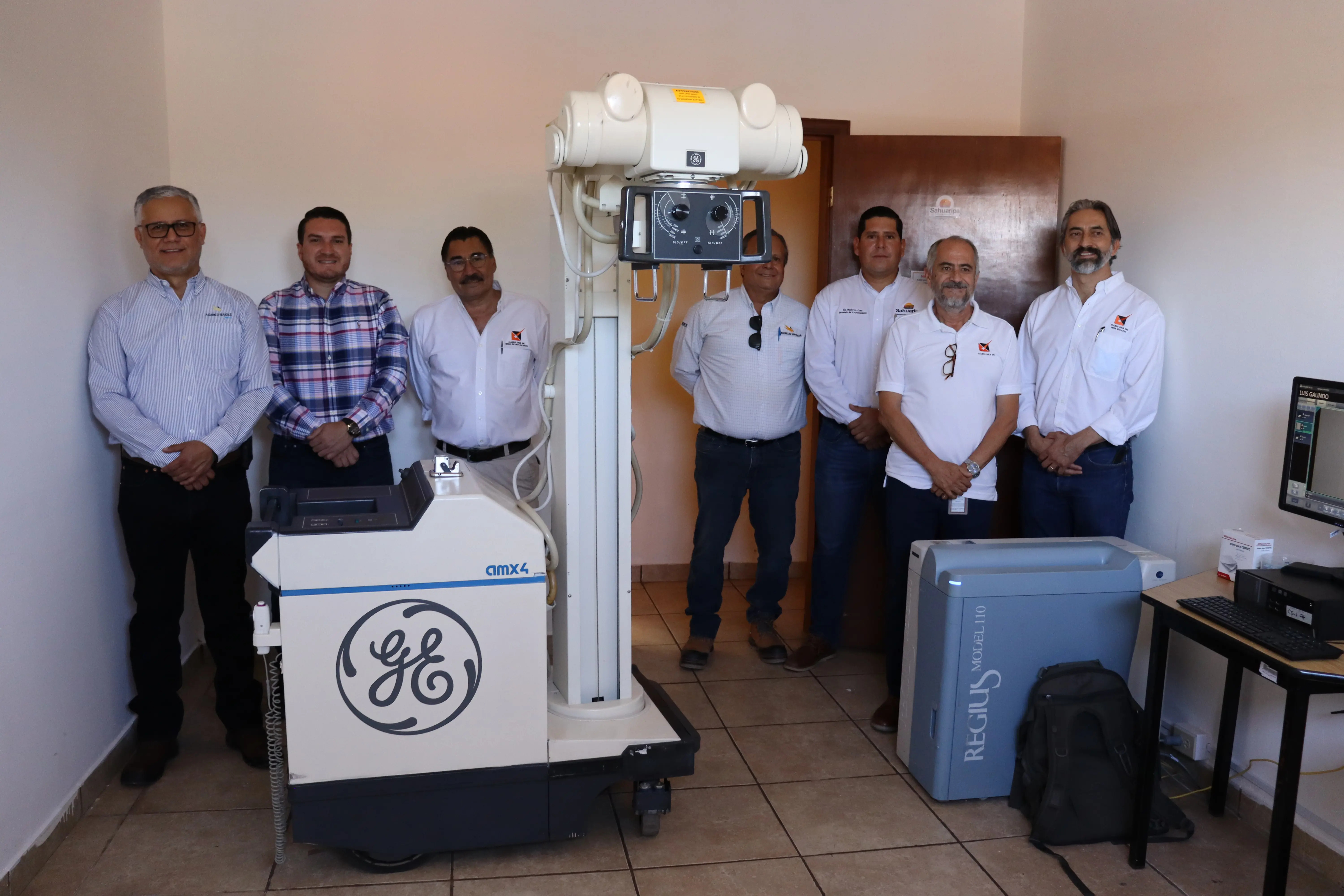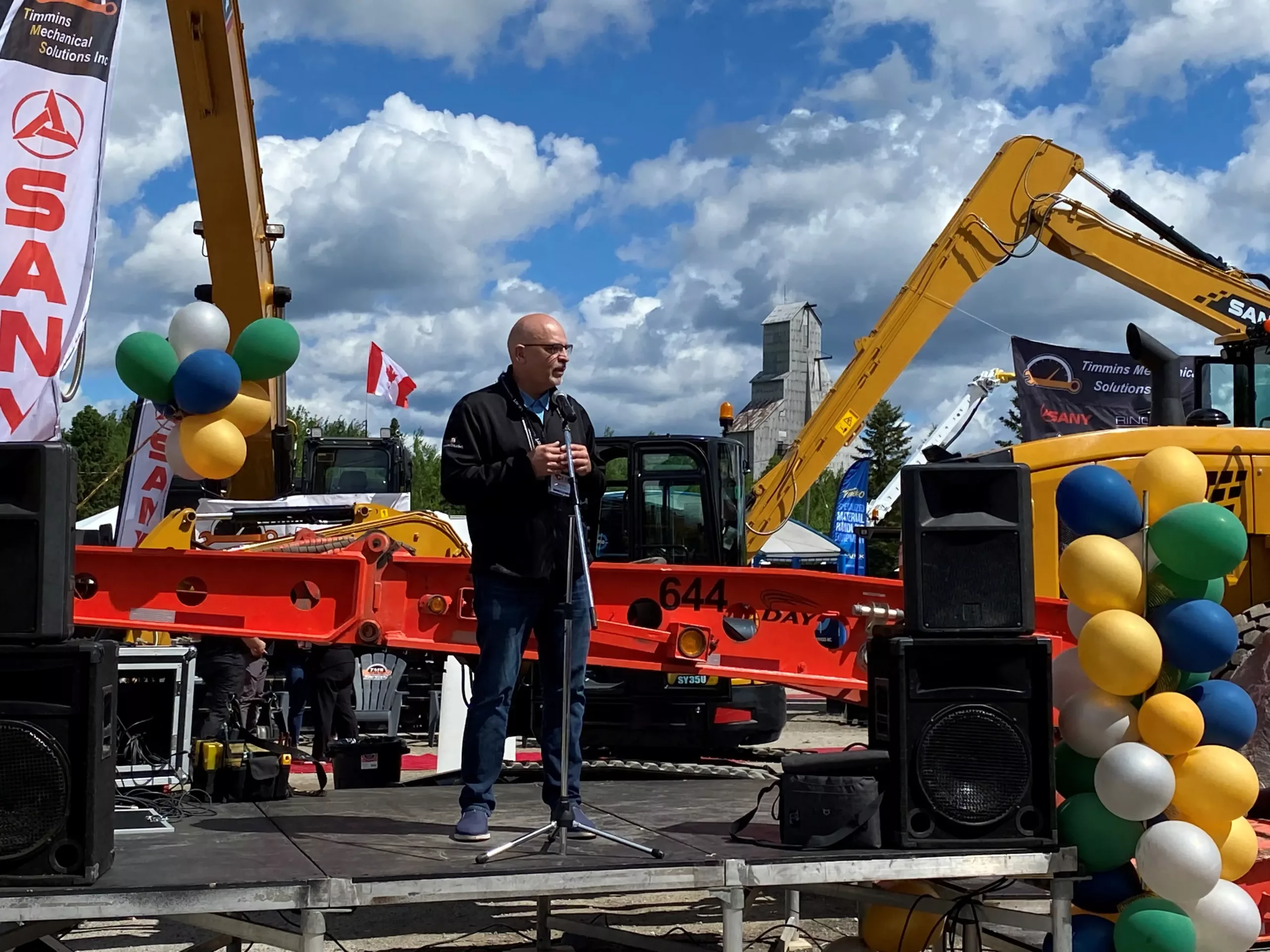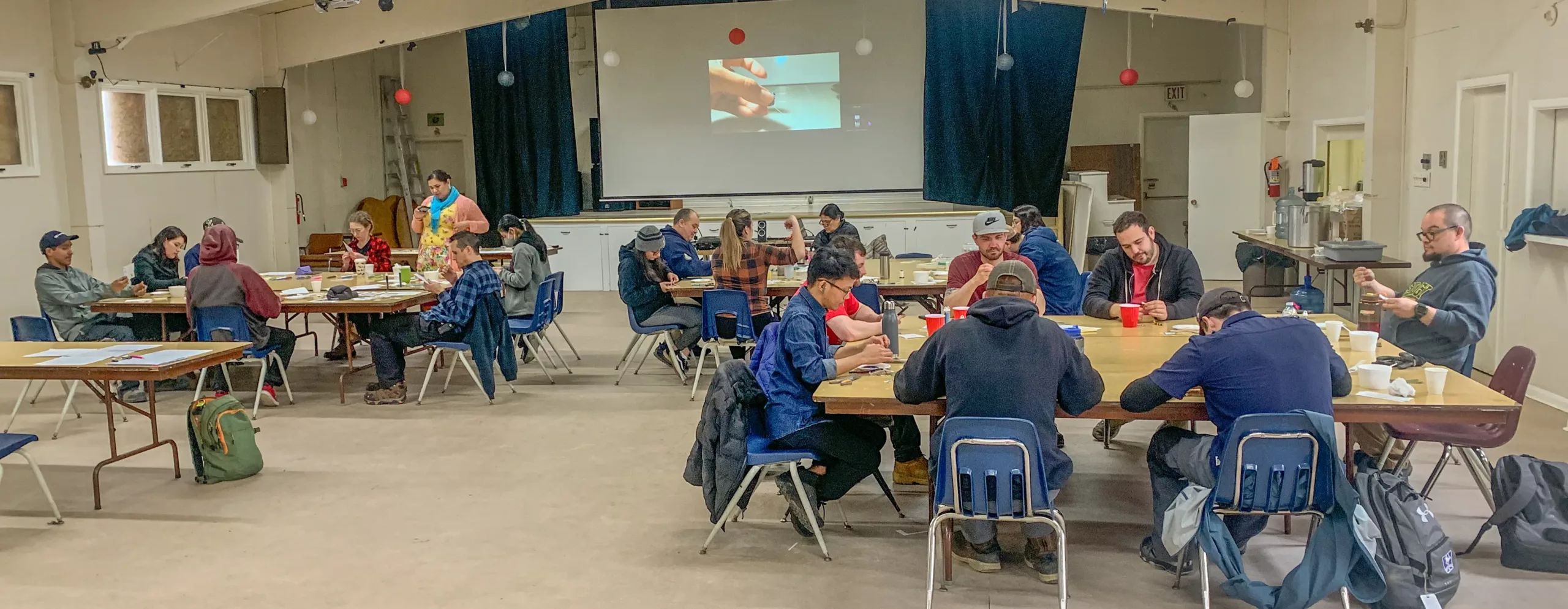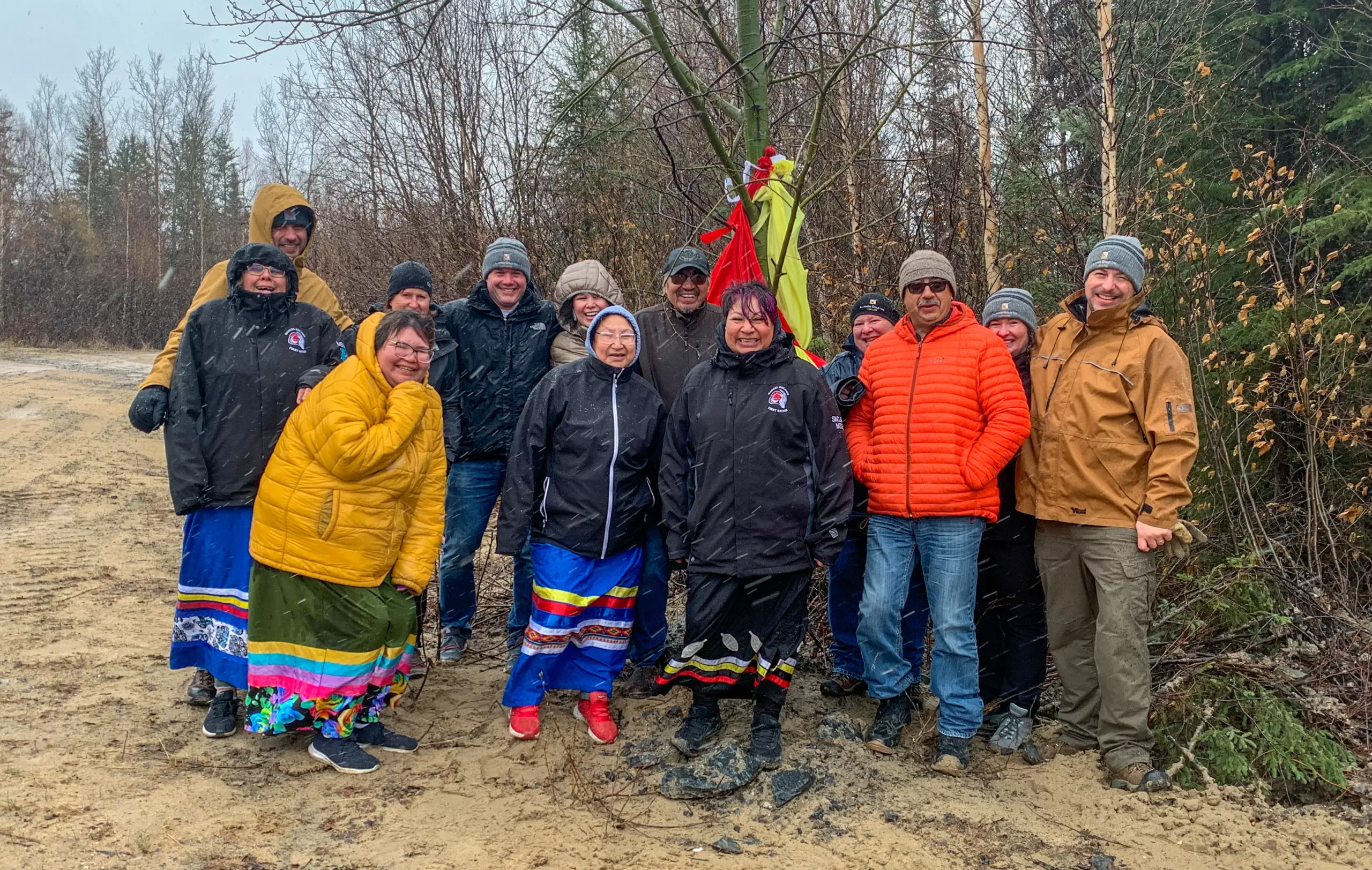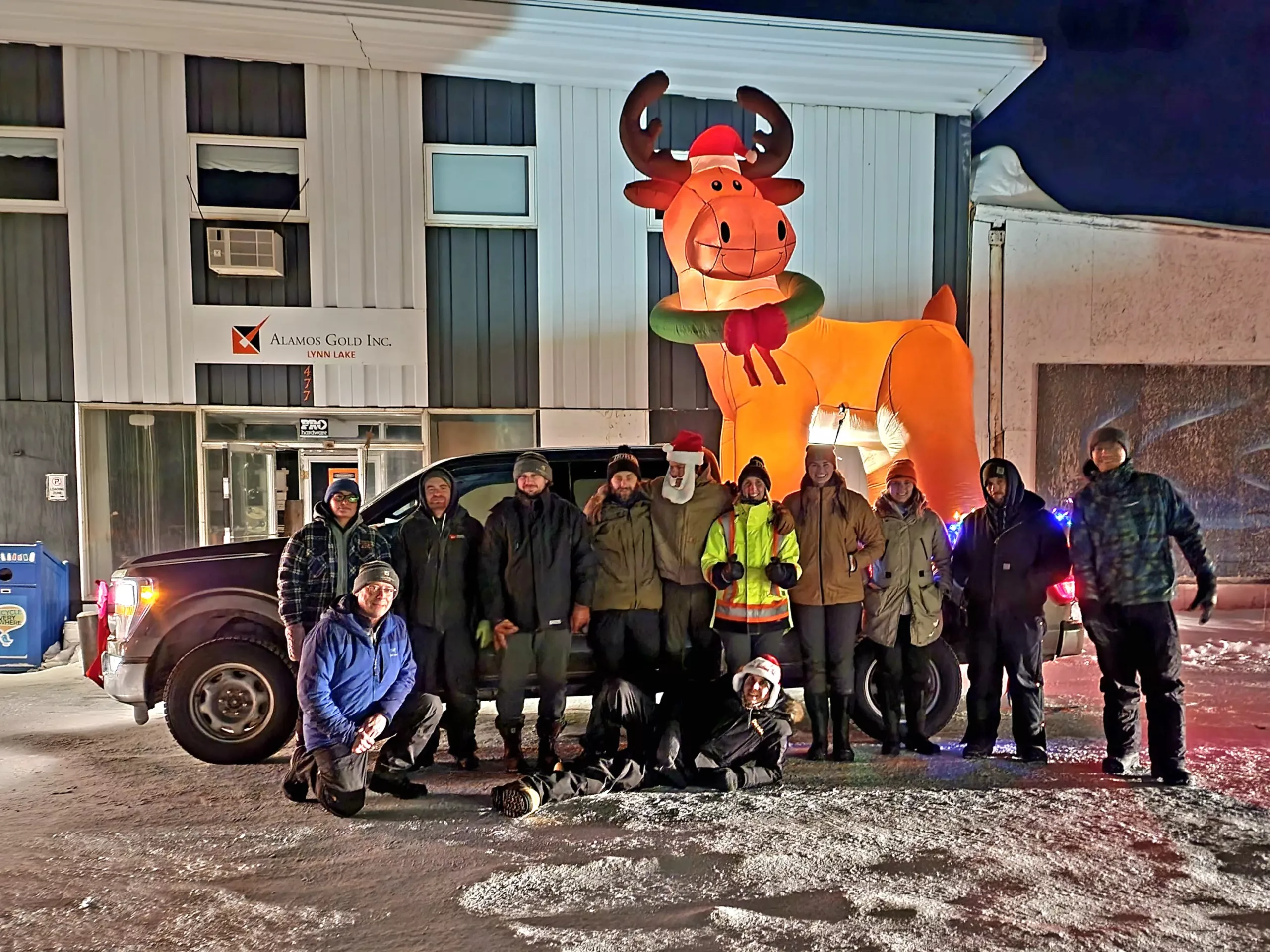Communities

Wherever Alamos operates, we strive to be a respected and welcomed member of the community.
Human Rights & Respect
Our commitment to respect the human rights of our local communities begins with our Human Rights Policy, and is embedded into company culture. The Policy is guided by the International Bill of Human Rights, the United Nation’s Guiding Principles on Business and Human Rights, the Voluntary Principles on Security and Human Rights, and the World Gold Council’s Responsible Gold Mining Principles and Conflict-Free Gold Standard. Our Policy stipulates a number of commitments to consider all communities affected by our operations, and also gives specific attention to the rights of Indigenous Peoples.
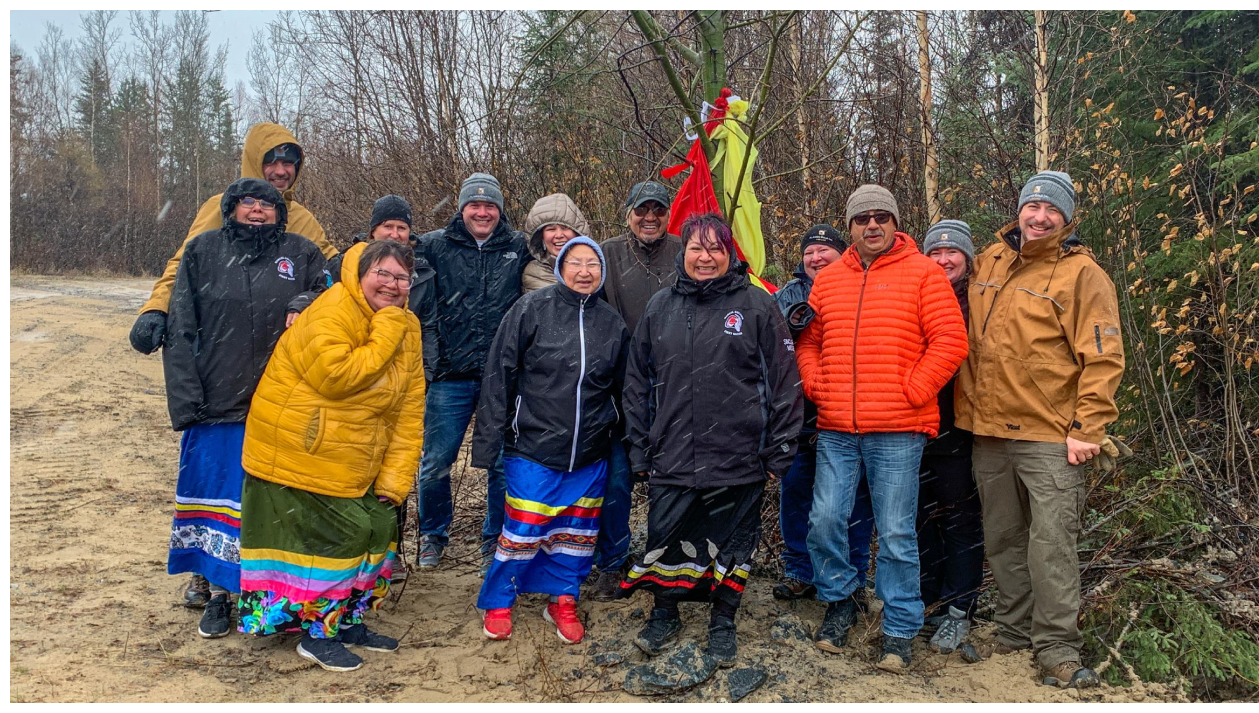
Our Canadian mines and projects have conducted Social Impact Assessments which have identified the risks and opportunities associated with the rights and interests of local communities, and our operating mines have implemented local community consultation committees and processes that include vulnerable groups. The significant actual and potential negative social impacts that have been identified through these systems and procedures, across all of our operations and projects, include: pressures on infrastructure and housing services; income inequality; reduced access to land and water; divisions between those who benefit from the mine and those who don’t, and; general changes to community social dynamics. In the case of our Mulatos Mine, the risk of relocating homes due to competing land interests has been realised and is discussed in the Housing and Land section.
All Alamos mines and projects have due diligence processes in place to ensure the rights of our Communities are respected. At Mulatos and the Lynn Lake Project we have implemented formal community grievance mechanisms to assist with identifying, investigating and responding to concerns filed by our communities. In Ontario we rely on community engagement and stakeholder consultation with our local communities and Indigenous partners to manage concerns. Of the nine grievances filed by local community members across all of our operations in 2022, four were investigated, resolved and closed within 30 days. There were zero (0) site shutdowns due to non-technical factors.
Mechanisms for the Protection of Community Rights and Interest
Table 3.1
| Young-Davidson | Island Gold | Mulatos | Lynn Lake | |
|---|---|---|---|---|
| Social Impact Assessments | True | True | False | True |
| Environmental Impact Assessments | True | False | True | True |
| Formal Community Development Programs | False | True | True | True |
| Stakeholder Engagement Plans based on Stakeholder Mapping | False | True | True | True |
| Community Consultation Committees | True | True | True | True |
| Formal Community Grievance Mechanism | False | False | True | True |
Across the global mining industry, security practices have been identified as a potential risk to the human rights of local communities. All security personnel at Alamos operating mines receive and complete human rights training. These training requirements also apply to private security contractors working with our teams. Per the Uppsala Conflict Data Program (referenced by SASB), the Heidelberg Conflict Barometer (referenced within the WGC’s Conflict Free Gold Standard), and our own self-assessment, none of our operations other than the Mulatos Mine are considered to be located in conflict-affected areas. As a result of ongoing, non-state violence and organised crime in Mexico, the security program at Mulatos is our most involved. Security personnel at this site have undertaken additional training to incorporate relevant aspects of the Voluntary Principles on Security and Human Rights (VPSHR) in performing their duties. For Alamos, aligning security practices with the VPSHR helps us minimise security-related impacts on local communities, and aligns our corporate policies with internationally recognised human rights principles. It also reduces reputational concerns and contributes to operational stability.
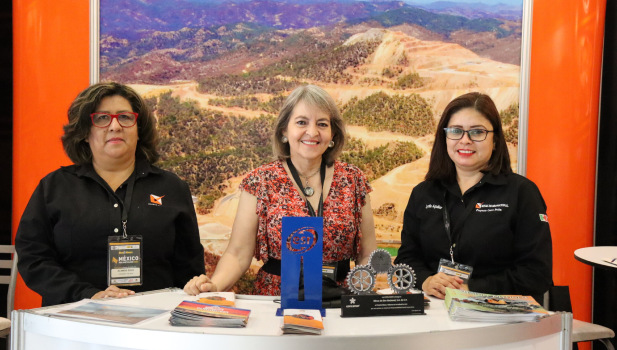
HUMAN RIGHTS & RESPECT SPOTLIGHT
In 2022, the Mexican Center for Philanthropy (CEMEFI) and the Alliance for Corporate Social Responsibility for Mexico (AlieRSE) awarded the Mulatos Mine with the ESR 2022 Distinction for Large Companies, certifying their status as a Socially Responsible Company for the 14th consecutive year.
See More
The distinction is an attestation to Mulatos’ continued success in implementing socially responsible management practices, improving quality of life for local communities, maintaining positive relationships with stakeholders, manifesting strong corporate governance and ethics, and environmental preservation. Mulatos was also presented with the Ethics and Values in Industry Award by the Industrial Chambers Confederation of Mexico (CONCAMIN) for the third consecutive year.
Rights of Indigenous Peoples
As a Canadian company, Alamos recognises the special connection Indigenous peoples have with the land, and our responsibility to recognise and respect their distinct rights and interests. The Young-Davidson Mine, Island Gold Mine, and Lynn Lake Project are all situated within the traditional territories of Indigenous Peoples.
It is of the utmost importance to Alamos that impacted Indigenous communities benefit from the existence of our operations to a degree deemed fair by the community themselves. Formal Participation Agreements are the most common mechanism for determining the specific terms and requirements to achieve this objective. At year-end 2022, the Young-Davidson Mine had in place three agreements (with the Matachewan First Nation, Temagami First Nation, and Wahgoshig First Nation), the Island Gold Mine had in place three agreements (with the Missanabie Cree First Nation, Michipicoten First Nation, and Batchewana First Nation) with one more underway, and discussions pertaining to two agreements were underway at the Lynn Lake Project.
Outside of existing agreements, Alamos is committed to ongoing, open, respectful dialogue with all Indigenous peoples who have an interest in our mines, to better understand different perspectives and discuss our shared interests in the environment. Some of the due diligence practices we employ to protect the rights and interests of Indigenous peoples include the employment of full-time Community Relations staff at Island Gold and Lynn Lake, participation of Indigenous stakeholders in environmental consultation committees, the maintenance of detailed stakeholder maps and engagement plans, the routine assembly of community consultation committees, and the presence of Indigenous engagement expertise within the Corporate senior management team.
There were no reported violations to the rights of Indigenous peoples at any of our locations in 2022.
INDIGENOUS RELATIONS SPOTLIGHT
In recognition of his many successes in establishing trusting relationships with Indigenous communities, Colin Webster, Alamos’ Vice President of Sustainability and External Affairs and proud Algonquin member of the Kitigan Zibi Anishinabeg, was the recipient of the Prospectors and Developers Association of Canada’s 2022 Skookum Jim Award. This award, named after the Indigenous leader of the group that discovered the Yukon Klondike goldfields, is annually presented to an individual from a recognized Indigenous group who has demonstrated exceptional achievement and a significant contribution to the mining industry.
Community Investment
Wherever Alamos operates, we strive to be a respected and welcomed member of the community. Every Alamos location invests in their local community in ways that are contextually relevant. For investments, we consult with each community to determine their requirements via direct engagement with local representatives. For donations and sponsorships, we prioritize spend on initiatives aligned with both community and employee interests.
IN-CASH
Some areas to which we commonly provide in-cash funding are infrastructure (housing, schools, health centers, and recreation facilities), cultural activities (traditional ceremonies, parades, sports, arts-based events, and festivals), and education (scholarships, uniforms, laptops/tablets, and stationery). In 2022 we contributed $1.8 million in-cash to local community initiatives.
IN-KIND
Alamos also makes in-kind contributions to support the economic resilience and self-sufficiency of our local communities. Some examples of in-kind contributions made in 2022 include:
- the donation of an ambulance to the Municipality of Sahuaripa in Mexico, to bolster their emergency care services for years to come;
- the provisioning of canoe and cross-country ski programs for Marcel Colomb First Nation and the greater Lynn Lake community, to support the community’s connection to traditional practices;
- a partnership with the Monterrey Institute of Technology and Higher Education to bring an online high school system (Prep@net) to the residents of Matarachi, wherein Alamos contributed scholarships, computers, furniture, and internet access;
- the installation of water treatment equipment and pipe networks in Matarachi, to increase household freshwater access toward a goal of 100 litres per person per day in alignment with the United Nations Sustainable Development Goals (UN SDGs);
- the hosting of an educational career day at the Island Gold Mine in partnership with the Outland Youth Employment Program, for Indigenous youth to learn about opportunities in the mining sector; and
- the delivery of school supplies, backpacks and school shoes to the communities of Matarachi, El Trigo, Güisamopa and Yécora.
PRO-BONO
The investment of time, through pro bono engagements and participation in community-led events, is also an effective way to build and maintain positive relationships with our local communities. This year, Alamos staff participated in community fundraising events, open houses, showcases, clothing drives, town clean-ups, parades, cultural ceremonies, site tours and more.
LOCAL PROCUREMENT
While direct community investment is an important element of maintaining our relationships with communities and corporate citizenship, perhaps the most significant way Alamos provides value to local communities is through the goods and services we purchase as part of building and operating our mines. We prioritise the hiring and contracting of local vendors to ensure the maximum amount of investment is made within local communities. In areas where it is not possible to procure goods and services from local suppliers, we seek to work with vendors to train and upskill them in order to improve their capacity for working with us.
Proportion of Employees Hired from the Local2 Community
Table 3.2
| Young-Davidson | Island Gold | Mulatos | Lynn Lake | |
|---|---|---|---|---|
| Workforce Hired from Local Region | 86% | 44% | 96% | 25% |
| Management1 Hired from Local Region | 88% | 0.2% | 99% | 0% |
Proportion of Total Procurement Budget Spent on Local Suppliers2
Table 3.3
| Operations | Projects | Offices | ||||
|---|---|---|---|---|---|---|
| Alamos Total | Young-Davidson | Island Gold | Mulatos3 | Lynn Lake | Toronto Head Office | |
| Total Procurement Spend ($) | 718,891,101 | 188,214,291 | 190,229,311 | 299,657,621 | 17,318,779 | 22,459,155 |
| Percent Spent on Local Suppliers | 39% | 15% | 13% | 66% | 60% | 79% |
| Percent Spent on National Suppliers | 60% | 85% | 86% | 33% | 31% | 18% |
| Percent Spent on International Suppliers | 1% | 0% | 1% | 1% | 9% | 3% |
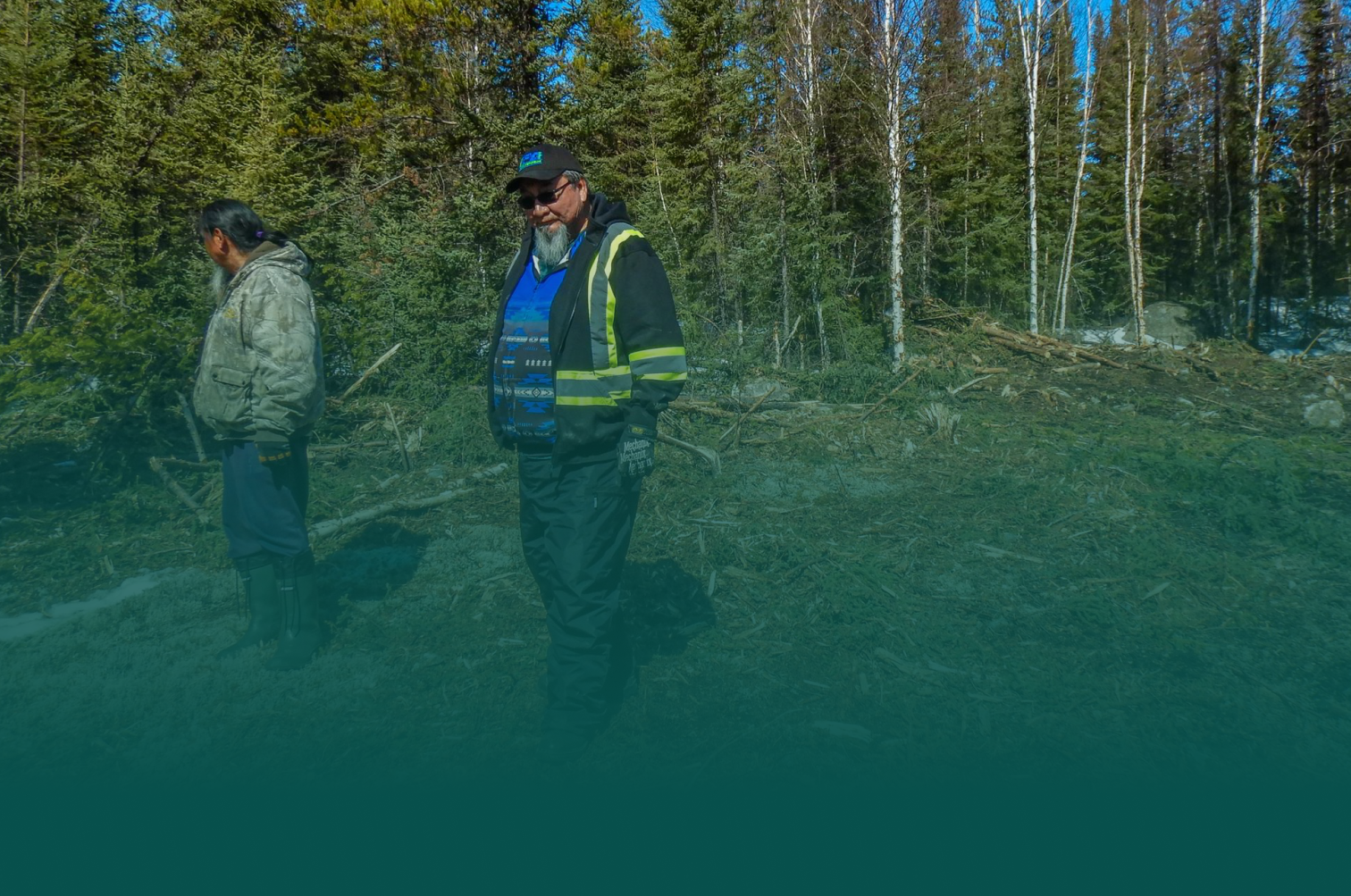
Housing & Land
The nature of mining is that it often requires the temporary occupation of significant amounts of land and the employment of significant numbers of people. These inherent, unmitigable factors can create pressure on housing and land tenure for local communities – particularly in remote areas where resources are limited to begin with. Alamos is acutely aware of how this challenge plays a unique role at each of our operating mines.
The Young-Davidson Mine is located 3km west of Matachewan township, a small community of approximately 225 permanent residents in Timiskaming, Ontario. The local economy today is based largely around mining and forestry with some fishing and hunting tourism. The economy has been reinvigorated due to continued growth at Young-Davidson, following economic challenges in the early 2000s due to the closure of local mines. Though the mine attracts a large workforce, pressures on Matachewan township have been few as the majority of the mine workforce commutes from Kirkland Lake, Temiskaming Shores and other communities in the region. Local negative impacts of the mine include increased demand for housing and escalating prices, increased traffic through Matachewan township (employees and suppliers), and increased strain on municipal landfill and capacity.
The Island Gold Mine is situated near the township of Dubreuilville in Algoma, Ontario, which was founded as a single-industry lumber town supporting a sawmill. Since the mill’s closure in 2008, the town has transitioned from one with minimal industry to a mining town supported by the growth of Island Gold and other local mines. Transitions of this nature can shift social and economic dynamics, with effects on local residents and businesses depending on their direct or indirect relationship to the mine. 44% of the mine’s workforce is from the local area. Local negative impacts of the mine include increased demand for local housing and escalating prices, increased strain on municipal landfill and capacity, increased traffic and associated dust emissions from gravel roads, impediments on access to hunting areas, and a shift in community culture from a majority francophone population to a greater mix of francophone and anglophone residents.
The Mulatos Mine is nested in the Sierra Madre Occidental mountain range of Sonora, Mexico. Local residents near the mine, particularly in the small village of Mulatos, have been directly affected by the mine’s operation and growth. This growth has resulted in village residents being voluntarily relocated as part of a multiyear project beginning in 2016 that was undertaken with extensive consultation and collaboration with the communities involved. Alamos worked with social performance experts to design and manage a resettlement program and followed leading practices including IFC Performance Standard 5. To support relocation, Alamos constructed 21 new homes (each with three bedrooms) in the nearby town of Matarachi, as well as a new education center, church, and medical clinic. At the end of 2022, 64 of 67 households from the village of Mulatos had voluntarily signed resettlement agreements and relocated to Matarachi, Hermosillo, Sahuaripa, or Chihuahua. Of the three households that have not finalised agreements, only one lives in the Mulatos village.
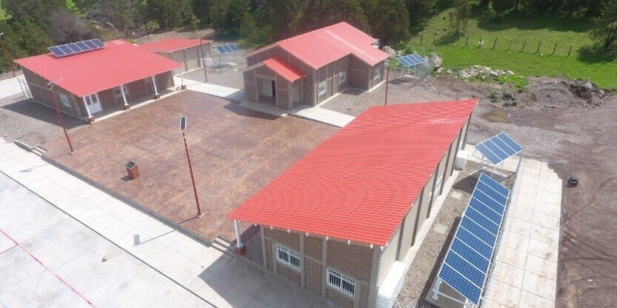
Housing & Land Spotlight
This year, Alamos has proudly continued to bolster the My Matarachi – Community Vision for the Future Program. With Matarachi being a core receptor of Mulatos’ resettlement plan, ensuring that the community thrives alongside these changes is of paramount importance. The Program, created in 2021, provides support in alignment with the UN SDGs and the indicators of the National Evaluation Council (CONEVAL). Some specific initiatives of the program conducted in 2022 have been highlighted in the Community Investment section.
PREVIOUS
< Our PeopleNEXT
Environment >References
- Superintendent, Manager, and above.
- Young-Davidson: Timiskaming, Kirkland Lake, Matachewan, Elk Lake, and their immediate surrounding areas. Island Gold: Wawa, Dubreuilville, White River, and their immediate surrounding areas. Mulatos: Sonora State. Lynn Lake: Northern Manitoba.
- Procurement spends at the Hermosillo Office have been included in the Mulatos figure for this indicator.

